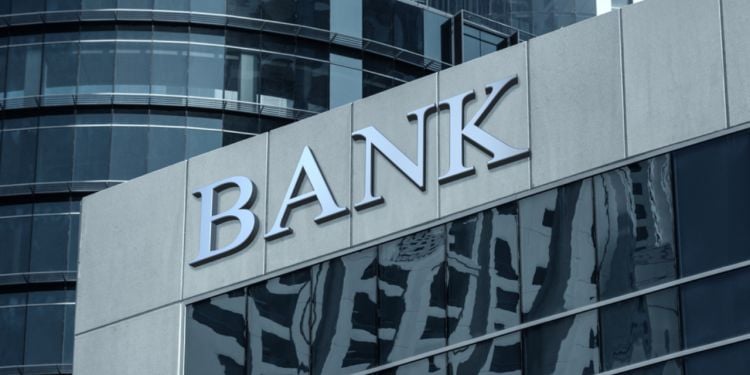
Soon after arriving in Kuwait, you will likely want to open a Kuwaiti bank account. Opening a bank account can be an easy and straight-forward process as long as you are well informed of the requirements and procedures.
Choosing your bank as an expat in Kuwait
The first thing you will need to do is choose which bank you would like to open an account with. There are currently 11 local banks and 12 foreign banks in Kuwait. All banks are regulated and supported by the Central Bank of Kuwait. It is usually recommended to go with the same bank your company deals with for ease of salary transfer. You can, however, choose to go with a different bank if you find that one suits you better.
Top banks in Kuwait
National Bank of Kuwait
The National Bank of Kuwait (NBK) was founded in 1952 and was the first locally-owned bank to be established in Kuwait. NBK is one of the largest banks in the country by assets and is the most widely used bank in Kuwait. NBK has over 65 branches within Kuwait, as well as multiple branches across the Middle East, Asia, Europe and the United States.
Burgan Bank
Burgan Bank is considered to be one of the leading financial institutions in the MENA region. It was established in 1977 as a joint-stock company with the government of Kuwait as a majority shareholder and was fully privatized in 1997. It currently has 29 branches across Kuwait, as well as offices in Europe, America and Asia.
Gulf Bank
The Gulf Bank of Kuwait was founded in 1960 by a group of twelve merchants with a capital of just 24 million rupees. Today, it is the third-largest financial institution by assets in the country. Gulf Bank has over 50 branches and 300 ATMs across Kuwait and provides a multitude of services ranging from consumer and whole banking to treasury.
Commercial Bank of Kuwait
The Commercial Bank of Kuwait (CBK) was established in 1960 and is the second oldest bank in Kuwait. At the start of its establishment, CBK played a pivotal role in financing the oil industry and provided financial assistance to individuals and businesses affected by the Gulf War. It was also one of the first banks in Kuwait to offer Sharia-compliant financial services in 1992. The Commercial Bank of Kuwait currently has 68 branches across the country and offers a range of services such as retail banking, wealth management and investment banking.
Ahli United Bank - Now Kuwait Finance House
Ahli United Bank was founded in 1941 as the Imperial Bank of Persia and became fully owned by the Kuwaiti government in 1971. It was converted to a Sharia-compliant Islamic bank in 2010. Since then, there has been a merger between Ahli United Bank and Kuwait Finance House, which is now operating all of its services.
Opening a bank account in Kuwait
Your company should assist you with the necessary documents needed to open your account. As you will need your residency visa and civil ID issued before opening a bank account, most companies will provide you with at least your first month's pay in cash to circumvent the time you'll be waiting on your residence visa. Once your account is open, most companies will directly deposit your pay based on their pay schedule.
Types of bank accounts in Kuwait
Once you've chosen which bank you'd like to open an account with, you will need to decide what type of bank account suits you best. There are a number of different types of accounts available in Kuwait, with the main ones being:
Current accounts:
- Mainly used for daily transactions.
- Offers checkbooks, debit cards, and online banking.
- Available for both residents and expatriates.
- Easy access to funds and convenient for managing daily expenses.
Savings accounts:
- Designed to encourage savings with interest earnings.
- Provides interest on deposits, debit cards, and online banking.
- Open to both residents and expatriates.
- Earn interest on your balance, which is usually higher than that offered by current accounts.
Salary accounts:
- Specific for salary deposits.
- Facilitates the direct deposit of salaries, debit cards, and online banking.
- Often requires an employment certificate from the employer.
- Convenient for receiving and managing salaries with additional benefits such as loan facilities.
Fixed deposit accounts:
- To save money for a fixed period with higher interest rates.
- Fixed-term deposits with higher interest rates compared to savings accounts.
- Available for both residents and expatriates.
- Higher interest rates and secured investment over a fixed term.
Joint accounts:
- Managed by two or more individuals.
- Shared ownership and access.
- Both residents and expatriates can open joint accounts.
- Convenient for couples, families, or business partners.
Eligibility to open a bank account in Kuwait
In order to open a bank account as an expat in Kuwait, you will need to meet the following eligibility criteria:
- Most banks require that the account holder be aged 21 or older. In some cases, bank accounts can be opened for minors with the consent of a guardian.
- You must have a valid residency in Kuwait in order to open a bank account with any local bank.
- Most accounts will require proof of employment, along with a salary letter, in order to open a bank account (especially if you're looking to open a salary account).
- Most banks require a minimum deposit to open a bank account. This amount varies from one bank to another, as well as across different types of accounts.
Required documents
Depending on both the bank and the type of account you choose, there may be differences in the documentation required to open an account. However, there are some general requirements that are the same across all banks.
- Identification documents:
- Valid passport
- Civil ID
- Valid residency visa
- Proof of address, such as a rental agreement
- Proof of employment
- Salary certificate from your company
- Valid work contract
- Letter of no objection (NOC) from your sponsor (which will usually be your company).
- Passport-sized photos.
Minimum deposit
As mentioned, along with the required documentation, you will need to provide a minimum deposit amount in order to open a bank account. This will vary depending on the bank you choose, as well as the account type.
For example, NBK's current account requires a minimum deposit of 500 KWD, while Gulf Bank only requires a minimum deposit of 200 KWD, and both Burgan Bank and the Commercial Bank of Kuwait require a minimum deposit of 100 KWD.
Application process
Once you've chosen your bank, account type and have gathered all the required documentation, the process is as simple as visiting the closest branch to you, and you will be assisted there. It's important to note that this will be the main branch that you will need to visit in case you need to change any information or pick up a new card, so it's best to pick one that is accessible to you.
When you get to the bank, you will be provided with an account opening application form, which you will need to fill out. Once the form is complete, you will need to submit it to the bank along with all the required documentation. The bank representative will take some time verifying the information and will then ask for the minimum required deposit to open the account.
The bank will then process your application, and your account will be activated. You will receive all your account details, your debit card, a checkbook (if you've requested one), and information about online banking.
Credit cards for expats in Kuwait
Most banks will issue credit cards for expats in Kuwait. While there are no special credit cards for expats, the limit of these cards will depend on your monthly income. In order to obtain a credit card, you will need a valid civil ID and salary slips.
Most banks also have reward programs for using their debit or credit cards, such as cashback or discounts on stores and restaurants.
ATMs in Kuwait
You will find that ATMs are very accessible in Kuwait. You will usually find them in shopping malls and grocery stores, as well as attached to bank branches. The more popular banks (such as NBK, Gulf Bank and CBK) will tend to have a larger number of ATMs available. Generally, you will be able to find an ATM belonging to your bank in every area.
While the fees vary from one bank to another, most ATMs will charge you when using foreign bank cards. This fee usually ranges from 1% to 3% of the withdrawal amount.
Online and mobile banking in Kuwait
Most banks in Kuwait have made the switch to online and mobile banking for most of their services. This makes banking quick, easy and convenient for users. The main services you can find online are:
- General account management: Viewing your account balances, transaction history, and statements.
- Bill Payments: Pay utility bills, credit card bills, and other expenses online.
- Notifications and alerts: Set up alerts for account activity, low balances, and due payments.
- Transferring funds: Transfer funds between your accounts or to other local or international bank accounts.
Transferring funds in Kuwait
If desired, funds can be transferred to other accounts easily from Kuwaiti banks. Transfer of funds is sometimes limited to a certain amount per month that can be transferred without penalty. Funds can also be transferred in any major currency. Most expats open offshore bank accounts to avoid being taxed within their home countries. Transfers made to home bank accounts are typically kept to a minimum. Banks provide debit cards with accounts and offer credit cards and lending, which can be useful for buying a car.
Joint bank accounts in Kuwait
Most banks in Kuwait offer the standard current, salary and savings accounts. If you're interested in opening a joint account with your spouse, there are a number of banks that can facilitate this. However, it is up to the bank to approve whether or not an applicant is eligible for a joint account.
Good to know:
A lot of banks are hesitant to open joint bank accounts between couples due to the high divorce rate in Kuwait.
If your chosen bank refuses a joint bank account, you can apply for a credit card through your bank for your spouse. If desired, you can also apply for a bank account for your spouse as their sponsor. This will require your written permission for your spouse to have a bank account in addition to the rest of the required paperwork.
In the event of an emergency, the bank is in no way obligated to provide your spouse with any of the funds available in your account and, in most cases, will keep the money. This is why many expats choose to keep some money in a joint account, either at home or outside of Kuwait. Most banks also offer savings accounts.
Good to know:
Interest rates are typically not very high in Kuwait.
The currency of Kuwait
Please note that issuing a check without enough funds available in the account to cover the full amount is illegal in Kuwait. Although checks are available through Kuwaiti banks, they are typically not the preferred method of payment. Cash is most preferable, followed by debit or credit cards, which are often referred to as K-net within Kuwait.
The Kuwaiti Dinar is divided into 1,000 fils. Coins are 10, 20, 50, and 100 fils and bills range from 0.25 up to 20 dinars.
Good to know:
The bills and coins become larger in size as the amount increases.
Tips for opening a bank account in Kuwait as an expat
As an expat in Kuwait, there may be a number of other things you will want to consider when opening your bank account. Here are a few tips to get you started in the right direction:
Choose an expat-friendly bank
Some banks in Kuwait are more accustomed to dealing with expats (usually the more popular banks like NBK) and can even offer you tailored services. These banks always have multilingual staff and can sometimes even have expat-specific account offerings.
Understand local regulations
It's incredibly important that you familiarize yourself with the banking regulations in Kuwait, as well as any restrictions that may apply to expats. Ensure that you're also aware of any tax implications and reporting requirements you have for your home country.
Maintain sufficient funds
While this is not always the case, some banks and bank accounts require a minimum balance to be in the account at all times to avoid being charged fees or even facing account closure. It's best to check the minimum balance requirements with your bank before opting for any specific account.
Seek assistance from your employer
Your employer can and should provide you with guidance and assistance when opening a bank account. In some cases, the company may have partnerships with certain banks, making the process smoother.
Useful links:
We do our best to provide accurate and up to date information. However, if you have noticed any inaccuracies in this article, please let us know in the comments section below.










